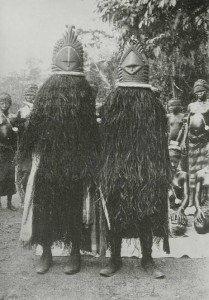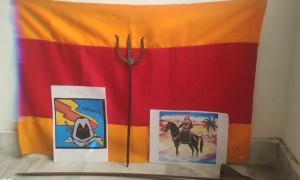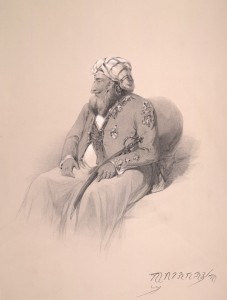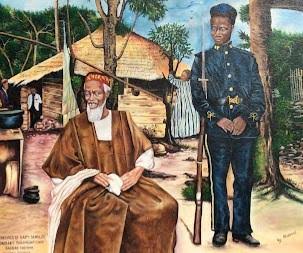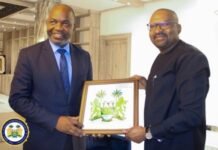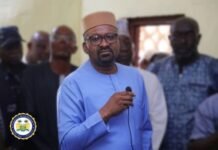By Rajja Sourav Singh Sarmal
Archaeological findings prove that the beautiful tropical Sierra Leone of west Africa has been inhabited for thousands of years. Language patterns in most of its parts suggest that its population certainly had a continuous cordial connection with different populations. The societies who migrated here from other parts of Africa or the world, adopted the lifestyle of the indigenous population and intermingled with them. Also, the indigenous people accepted many things of the foreigners.
Even the name of this country was given by non-indigenous people, the Portuguese voyagers. They termed it ‘Serra Lyoa’, which later became ‘Sierra Leone’ and it was then adopted as the official name post independence on April 27, 1961 from the British colonists.
After independence, it saw many ups and downs; especially in 1967 when after general elections, the army intervened and the nation saw its first military coup by Lt. Colonel Andrew Juxon-Smith. Successive coups under different commanders kept taking place thereafter as well.
The major reason behind such coups must be the vast mineral wealth of this country. Especially the diamonds and gold, so, it should not surprise us, why such a mineral rich nation had to bear unrest for long.
When the situation went out of hand and civil war-like events occurred in the decade of 90s, the United Nations Organisation decided to send peacekeeping troops here (UNAMSIL), who entered the country in November 1999. Their task was to support the peace efforts of the Sierra Leone government and rebels formalised on paper in the Togolese capital of Lome; to monitor the disarming and demobilisation of the rebels, called the Revolutionary United Front (RUF), and reintegration of the combatants, especially the child soldiers, in civil society.
During this peace mission, Lieutenant General VK Jetley (then Major General) of Dogra Regiment was appointed as the first UN Force Commander. The necessity of creating a UN force for Sierra Leone brought into scene when armed tussle between the government and various rebels factions, predominantly the Revolutionary United Front (RUF), was taking a major turn after several years of their conflict as the noble initiative of Economic Community of West African States (ECOWAS) made possible the Lome Peace Agreement being signed between Sierra Leonean Government and the representatives of the various rebel community.
The mission led by the Dogra Force Commander of UN was much successful in establishing peace in the country. Today many people of Sierra Leone might not even know what Dogra actually meant and who are these people; on whom name there is a military Regiment, whose General came from another corner of the world to bring peace to their nation.
The Dogra are one of the infamous ethnic tribes of Himalayas belonging to Khasa Arya stock. The land which they inhabit is historically known as Durgaradesa. Today, large part of their population can be found in Jammu & Kashmir, parts of Himachal Pradesh and Punjab states lying to the north of India, with a number of Dogras also residing in parts of bordering areas of Pakistan as well.
Although commander from their force acted as emissary of peace for Sierra Leone, traditionally they have been mercenaries, having fought wars for the British Empire, the Sikh Empire and their own Dogra empires throughout history, right from ancient times.
They have exercised suzerainty over vast areas, from Multan (in present day Pakistan); to the north extended over trans-Himalayan regions of Raskam valley and the Taghdumbash Pamir on one side and over Xiadulla and Qara Qash valley in present day China. They also held sway over the Kailash Mansarovar, a place revered by the Hindus and the Buddhists alike.
Just like Sierra Leone, most of the Dogras have also lost touch with their glorious past and true identity. The purpose of this article is to instil a sense of honour and respect towards the sacrifices of our ancestors. Dogras are resurging under Kaliterics, a group of highly motivated, and united by divine inspiration, working towards cultural and social renaissance of the Dogras. The beautiful nation of Sierra Leone is also called upon to remember its heroes and is assured another helping hand, as and whenever the clarion calls.
Kaliterics remind us of various groups of Sierra Leone like Purroh and Zadεgi, who is said to rely purely on the revival of the traditional values of Sierra Leone but Kaliteric as a whole is somewhat different group having different module of action; only thing common in between them is protection of the traditional aspects of their respective land.
In the history of Sierra Leone, if the warrior like Bai Bureh and his non – compromising attitude is highly regarded then in annals of Durgaradesa, their respective chiefs and warriors too hold the special place. Every tribe of world should know it’s roots and forefathers; it’s my message to all the readers. If we are being connected to our roots then it will help us to exist with dignity for longer time. The tribe who know their base can’t be subjugated so easily because they are being lead by their ancestors and gods who protect them from every harsh flame of harder times.
(Author is a major contributor to the Kaliteric Order, a free-spirited researcher of Jammu Kashmir and it’s allied territories, a spiritual Guide, the Proponent of Himalayan Renaissance, the Dogra Consciousness Advocator, social Thinker and a scholarly mentor.)
